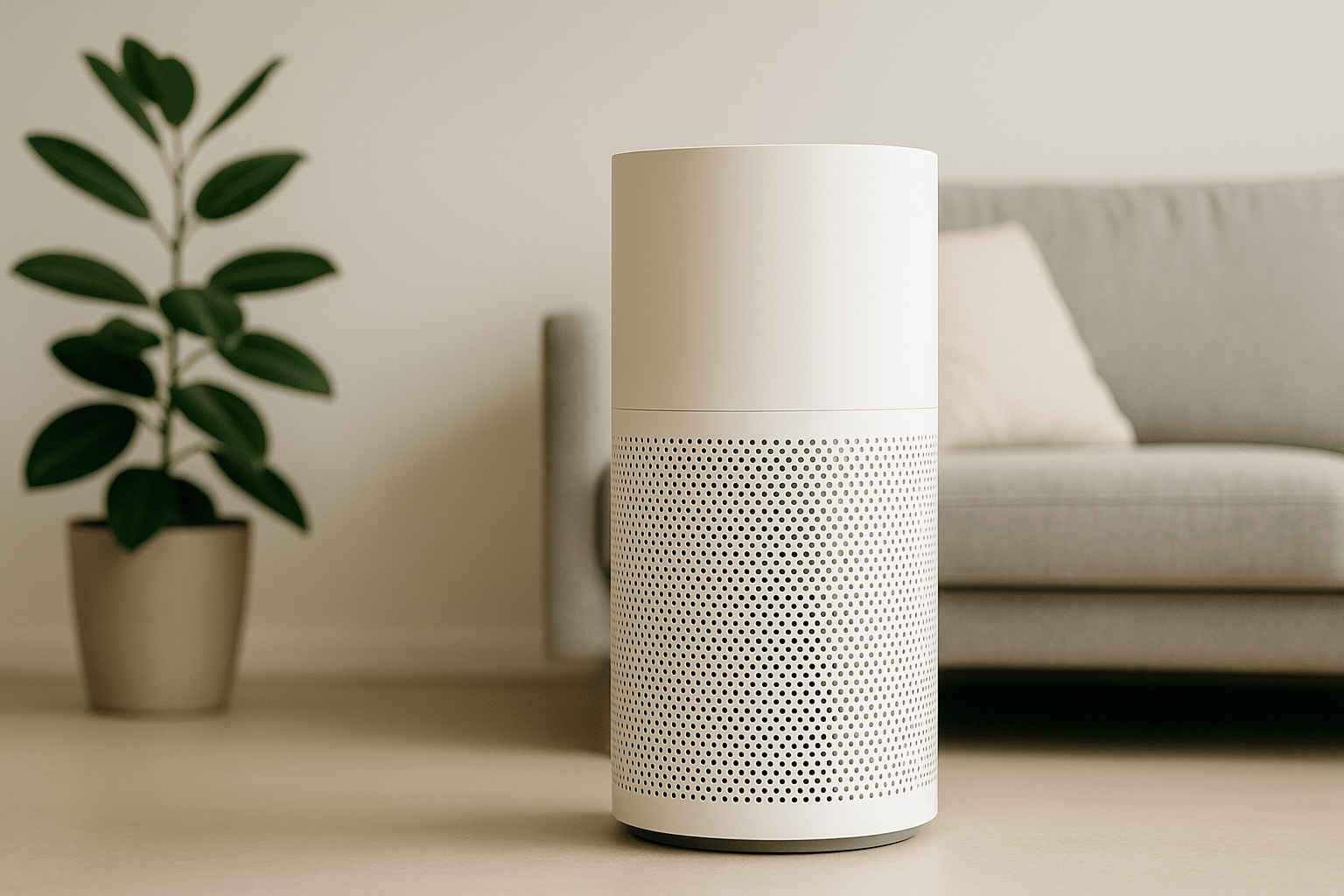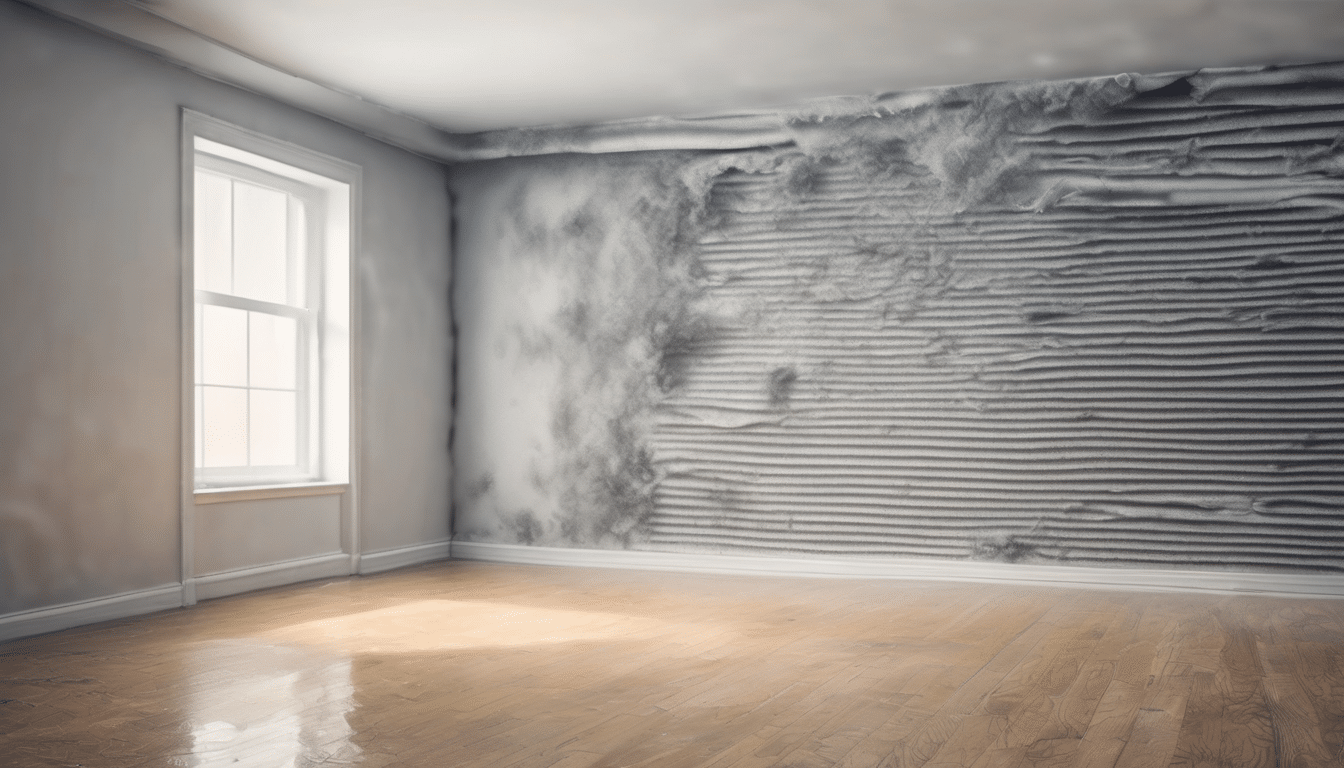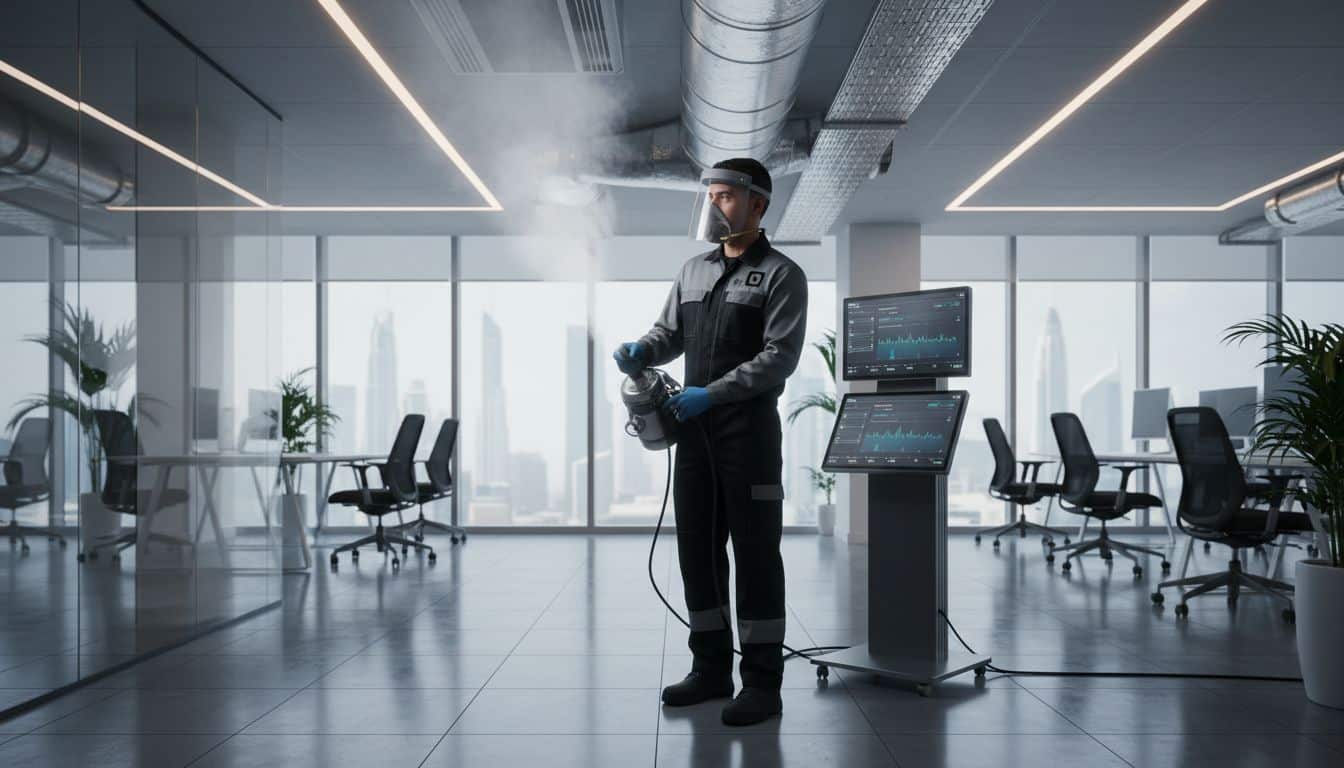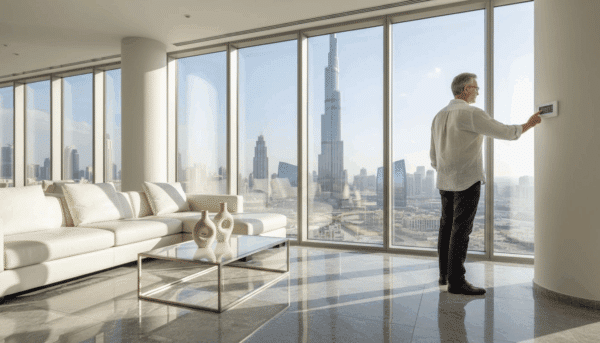
10 Effective Strategies to Improve Indoor Air Quality Solutions Dubai
Table of Contents
Contents
- 1 Table of Contents
- 2 Understanding Indoor Air Quality in Dubai
- 3 Key Factors Affecting Indoor Air Quality
- 4 Local Regulations and Standards for Air Quality
- 5 Practical Solutions for Improving Indoor Air Quality
- 6 Role of Professional Cleaning Services in Dubai
- 7 Importance of Ventilation and HVAC Maintenance
- 8 Innovative Technology to Enhance Air Quality
- 9 Impact of Plant Life on Indoor Air Quality
- 10 Common Mistakes to Avoid
- 11 Conclusion and CTA
- 12 Enhancing Air Quality in Dubai Homes and Workplaces: Effective Strategies to Improve Indoor Air Quality Solutions Dubai
Understanding Indoor Air Quality in Dubai
To improve indoor air quality solutions Dubai, it is essential to first understand what indoor air quality (IAQ) entails and why it matters in the context of Dubai’s unique environment. Indoor air quality refers to the condition of the air inside homes, offices, and commercial spaces, including its cleanliness, presence of pollutants, and overall freshness. Dubai’s desert climate, combined with rapid urban development and intensive air conditioning use, makes maintaining healthy indoor air critical for comfort and health.
In Dubai, the dry and dusty environment can introduce higher concentrations of particulate matter indoors, impacting residents’ respiratory health and wellbeing. People spend up to 90% of their time indoors, which means that the quality of indoor air strongly influences personal comfort, productivity, and long-term health. Dust accumulation, chemical vapors from construction materials, and microbial growth in poorly ventilated areas are common challenges affecting indoor environments across the city.
Key Factors Affecting Indoor Air Quality
Several factors impact indoor air quality in Dubai’s buildings, necessitating targeted approaches tailored to these influences. Awareness of these sources guides homeowners and commercial operators toward effective improve indoor air quality solutions Dubai.
- Outdoor dust infiltration: Desert dust frequently enters buildings due to open windows, doors, or ventilation systems without filtration.
- Air conditioning systems: HVAC units can circulate dust, mold spores, and bacteria if not regularly maintained or cleaned properly.
- Building materials and furnishings: Some materials release volatile organic compounds (VOCs) that degrade air quality.
- Household and commercial chemicals: Cleaning products, paints, and aerosols emit pollutants indoors.
- Poor ventilation: Insufficient air exchange traps pollutants and moisture indoors, encouraging microbial growth.
Identifying these factors helps designers and service providers in Dubai develop tailored improve indoor air quality solutions Dubai that address local challenges effectively.
Local Regulations and Standards for Air Quality
Dubai’s government and regulatory bodies emphasize health and environmental safety by implementing standards that govern indoor air quality. Organizations such as Dubai Municipality and Dubai Health Authority (DHA) enforce guidelines to limit indoor pollutant levels, encourage robust ventilation, and mandate regular maintenance of mechanical systems.
Though a detailed set of indoor air quality standards might not always be explicitly outlined, the integration of international best practices is combined with Dubai-specific climate considerations. For example, the Dubai Green Building Regulations promote sustainable and healthy indoor environments through energy-efficient, filtered ventilation and low-emitting materials.
Supporting adherence to these regulations ensures that improve indoor air quality solutions Dubai align with public health goals and legal compliance. Property developers and facility managers in JLT and other Dubai localities strive to meet or exceed these expectations to safeguard occupant wellbeing.
Practical Solutions for Improving Indoor Air Quality
Implementing effective improve indoor air quality solutions Dubai involves multiple practical strategies that range from straightforward habits to advanced technical interventions. Here are some of the most impactful solutions:
Regular Cleaning and Dust Control
Frequent dusting and vacuuming with HEPA filters reduce particulate buildup. Wiping surfaces with damp cloths and minimizing clutter helps limit indoor dust reservoirs.
Use of High-Efficiency Air Filters
Upgrading air conditioners and HVAC systems in Dubai to use high-efficiency particulate air (HEPA) or MERV-rated filters significantly cuts airborne dust and allergens, supporting overall improve indoor air quality solutions Dubai. Careful filter change schedules are critical.
Source Control for Chemicals and VOCs
Selecting low-VOC paints, furniture, and cleaning products minimizes indoor air toxins. Ensuring proper storage and ventilation during chemical use also helps.
Improved Ventilation Systems
Mechanical ventilation with heat recovery ventilators (HRVs) or energy recovery ventilators (ERVs) can provide fresh air without losing energy, a key consideration in Dubai’s climate.
Humidity Control
Maintaining indoor humidity at ideal levels (40-60%) reduces microbial growth. Dehumidifiers are often employed in humid months in Dubai to combat moisture accumulation.
Role of Professional Cleaning Services in Dubai
For many residents and businesses, utilizing expert improve indoor air quality solutions Dubai providers makes a substantial difference. Professionals possess the advanced equipment and experience necessary for deep cleaning and system maintenance beyond routine efforts.
Dubai’s local AC care options in JLT, including Saniacservice, offer specialized services such as duct cleaning, coil cleaning, and inspection of air handling units. Their work ensures HVAC systems operate efficiently and do not become sources of contamination.
In addition to AC servicing, professional teams employ techniques like electrostatic air purification and antimicrobial treatments that effectively reduce indoor pollutants and allergens. Engaging these services regularly forms a cornerstone of sustainable improve indoor air quality solutions Dubai, crucial in the local climate.
Importance of Ventilation and HVAC Maintenance
Ventilation quality is fundamental to indoor air health, especially in Dubai, where high temperatures prompt constant air conditioning use. Properly maintained HVAC systems provide continuous fresh air exchange, control humidity, and filter out particulates.
Neglecting maintenance can allow dust, mold, and microbial films to accumulate in vents and ducts, turning these systems into pollutant sources. Studies confirm that improving HVAC maintenance positively impacts air quality outcomes.
Dubai residents and businesses should establish routine inspection and cleaning schedules to ensure equipment efficiency and indoor air safety. Emphasizing LocalPack service availability for AC care options in JLT neighborhoods highlights the convenience and reliability of accessing quality improve indoor air quality solutions Dubai.
Innovative Technology to Enhance Air Quality
Technological advancements provide powerful tools for improve indoor air quality solutions Dubai, enabling proactive and precise control over indoor environments.
- Air Purifiers: Devices with HEPA and activated carbon filters effectively trap dust, smoke, and odors common in Dubai’s indoor spaces.
- UV-C Light Systems: Integrated into HVACs, UV light kills airborne bacteria and viruses, enhancing sanitation.
- Smart Sensors and Monitors: Real-time IAQ monitoring installed in homes or offices alerts occupants and triggers automated filtration or ventilation adjustments.
- Electrostatic Precipitators: These systems use static charge to capture fine particles, offering chemical-free purification.
Adopting these innovative approaches alongside traditional methods significantly boosts the effectiveness of improve indoor air quality solutions Dubai.
Impact of Plant Life on Indoor Air Quality
Integrating certain indoor plants helps improve air quality organically by absorbing CO2 and pollutants while increasing oxygen levels. Plants also add psychological benefits through biophilic design.
Some of the best indoor plants for Dubai homes and offices include:
| Plant | Benefits |
|---|---|
| Snake Plant | Removes toxins like formaldehyde and benzene, drought tolerant |
| Spider Plant | Filters carbon monoxide, easy to care for |
| Areca Palm | Humidifies air, effective for dust reduction |
| Peace Lily | Absorbs mold spores and VOCs |
However, maintaining these plants properly is important so they do not become sources of mold or pests themselves, especially in Dubai’s dry climate where watering routines must be optimized.
Common Mistakes to Avoid
While many seek to improve indoor air quality solutions Dubai, some common errors can undermine efforts:
- Ignoring HVAC maintenance: Skipping regular filter changes and duct cleanings allows indoor pollutants to build up.
- Poor ventilation design: Over-sealing spaces without adequate fresh air leads to stale, polluted indoor air.
- Using high-VOC products: Selecting cheap paints, adhesives, or cleaning agents without considering emissions harms indoor air quality.
- Overwatering indoor plants: Creates humidity spikes and fungal growth indoors.
- Delayed professional intervention: DIY fixes have limits; consulting expert services ensures lasting results.
Avoiding these mistakes helps residents and businesses safeguard air quality improvements and health benefits.
Conclusion and CTA
To improve indoor air quality solutions Dubai, a comprehensive approach that combines awareness, practical actions, and expert assistance is essential. From understanding local environmental factors to leveraging advanced technologies and professional AC care services like those available in JLT, residents and businesses can achieve healthier indoor environments suited to Dubai’s unique climate.
For those seeking reliable, effective improve indoor air quality solutions Dubai, partnering with trusted local providers such as Saniacservice ensures tailored and professional care. Additionally, adhering to guidelines recommended by authorities like NADCA supports efforts to improve indoor air quality solutions Dubai, maintaining top air quality standards.
Invest in your indoor air health today for a refreshing, safe living or working environment in Dubai.
Enhancing Air Quality in Dubai Homes and Workplaces: Effective Strategies to Improve Indoor Air Quality Solutions Dubai
Maintaining healthy indoor air in Dubai’s unique climate and urban environment is essential for residents and businesses alike. The combination of high temperatures, dust storms, and dense urban development in areas such as Business Bay, Dubai Marina, and Downtown Dubai creates particular challenges for indoor air quality (IAQ). To effectively improve indoor air quality solutions Dubai, it is important to adopt a holistic approach that addresses the sources of pollution, employs modern filtration technologies, and adheres to the latest local standards and guidelines.
Key Factors Affecting Indoor Air Quality in Dubai
Dubai’s desert environment means that outdoor pollutants like fine dust and particulate matter frequently penetrate indoor spaces. In addition, indoor sources—such as building materials, cleaning chemicals, HVAC systems, and occupant activities—can emit volatile organic compounds (VOCs), mold spores, and allergens. The humid periods in coastal areas like Jumeirah also increase the risk of microbial growth indoors, which further degrades air quality.
Dubai Municipality and Dubai Health Authority (DHA) have recognized that controlling indoor pollutants is critical for public health. Their guidelines encourage building owners and residents to proactively improve ventilation, monitor air quality, and reduce pollutant sources to prevent respiratory illnesses, allergies, and other health impacts, ultimately supporting comprehensive improve indoor air quality solutions Dubai.
Practical Solutions to Improve Indoor Air Quality in Dubai Residences and Offices
To effectively improve indoor air quality solutions Dubai, consider adopting the following key strategies:
- Optimize Ventilation Systems: Mechanical ventilation with fresh air exchange plays a vital role in reducing indoor contaminant build-up. Modern HVAC systems installed in Dubai’s commercial towers and residential complexes should comply with Dubai Municipality requirements, including regular filter replacement and cleaning protocols endorsed by the Dubai Health & Safety guidelines.
- Use High-Efficiency Air Purifiers: Portable and integrated air purifiers equipped with HEPA and activated carbon filters can capture fine dust, VOCs, and odors common in Dubai’s urban areas like Al Barsha and Nad Al Sheba. For HVAC systems, upgrading to filters meeting ESMA-approved standards ensures effective airborne particle reduction without compromising airflow.
- Control Humidity Levels: Maintaining indoor relative humidity between 30-50% is essential to prevent mold growth and dust mites, especially in waterfront locations such as JBR (Jumeirah Beach Residences) and Dubai Marina. Using dehumidifiers and ensuring proper sealing of leaks in windows or external walls helps control moisture intrusion.
- Adopt Green Cleaning Practices: Swap harsh chemical cleaners for environmentally friendly alternatives that emit fewer VOCs and irritants. This is particularly important in schools, clinics, and office buildings regulated by the DHA, where indoor air quality can directly impact vulnerable populations.
- Regular Maintenance and Monitoring: Periodic inspections performed by certified professionals, in line with Dubai Municipality and DHA maintenance protocols, ensure HVAC units and air filtration systems remain efficient. Installing indoor air quality monitors compliant with sensors approved for use in the UAE, aligning with Dubai’s regulatory framework, provides real-time feedback to facility managers and residents.
Innovative Technologies and Local Considerations
In Dubai’s fast-growing real estate market, smart building technologies offer new opportunities to improve indoor air quality. Intelligent HVAC controls integrated with outdoor air quality data provided by Dubai Municipality enable dynamic adjustment of ventilation rates depending on dust levels and ozone concentrations outside. This protects indoor air from pollution spikes during frequent dust storms, particularly in desert-adjacent neighborhoods like Al Awir and Arabian Ranches.
Moreover, Dubai’s focus on sustainability, as evidenced by initiatives through Dubai Clean Energy Strategy 2050 and the Dubai Supreme Council of Energy, drives adoption of eco-friendly materials and energy-efficient systems that minimize indoor pollutant sources. The use of low-emission paints, sealants, and furnishings aligned with ESMA certification helps reduce VOC emissions indoors.
Compliance and Health Benefits in Dubai’s Context
Adhering to Dubai Municipality’s IAQ codes and DHA’s health guidelines is not just regulatory compliance—it directly contributes to improved occupant comfort and productivity. For example, corporate offices in DIFC or Media City that implement comprehensive IAQ management reduce sick building symptoms and employee absenteeism. Similarly, residential projects in Dubai Hills Estate or Mudon benefit from enhanced well-being and lower occurrences of asthma and allergy-related health issues.
In conclusion, to truly improve indoor air quality solutions Dubai, stakeholders must consider local environmental challenges, leverage regulatory frameworks, and apply cutting-edge technologies suited to Dubai’s urban and climatic dynamics. Through these combined measures, healthier indoor environments can be reliably achieved for Dubai’s residents, workforce, and visitors alike.






Leave a Reply